PHILIPPINE EMBASSY CELEBRATES BUWAN NG WIKA AND 3RD ESKWELAHAN SA EMBAHADA
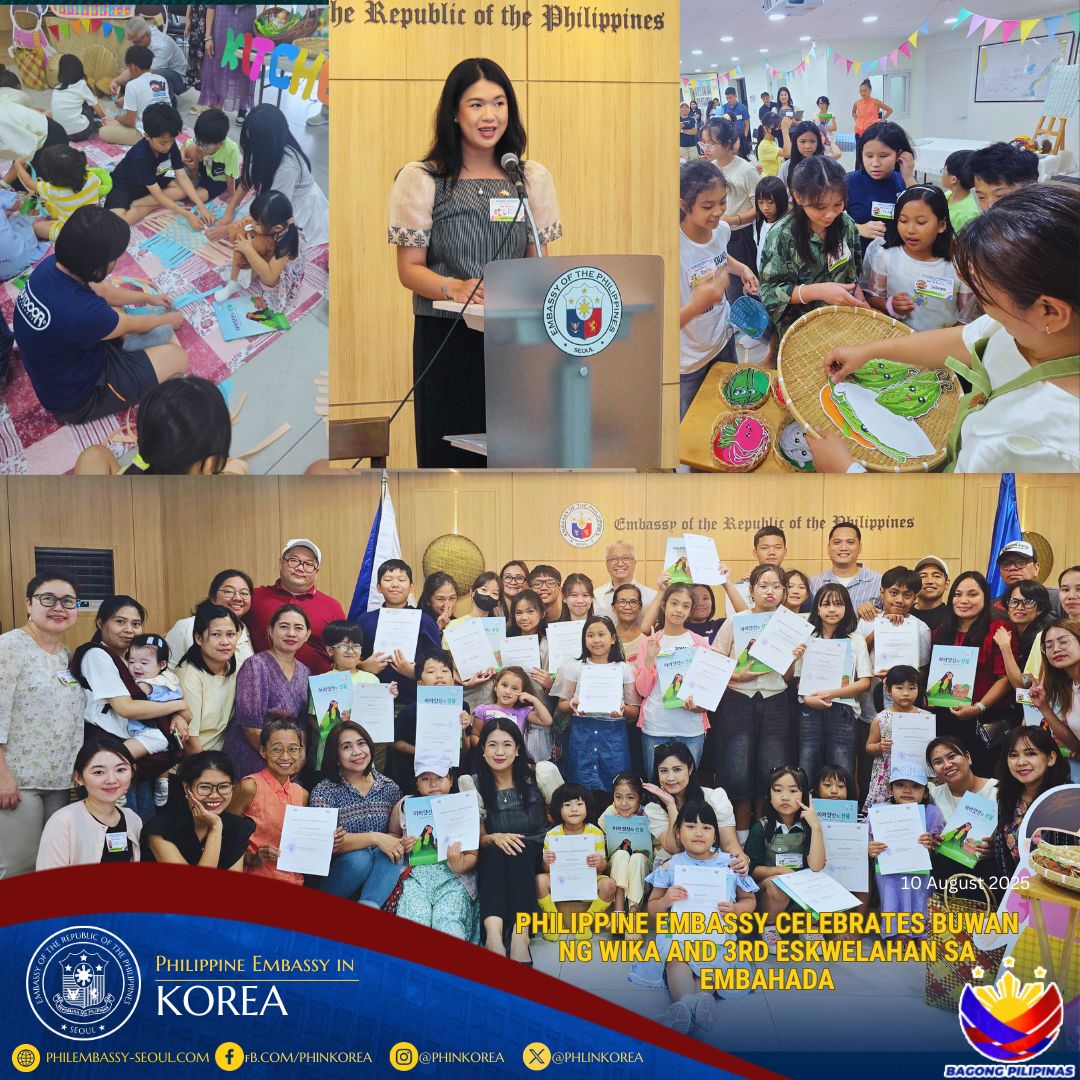
10 August 2025 - Seoul. In celebration of Buwan ng Wika, the Philippine Embassy in Seoul held the 3rd edition of Eskwelahan sa Embahada on 10 August 2025. This cultural initiative was designed to connect Filipino children in South Korea with the richness of Filipino language, traditions, arts, and cuisine.
The event brought together children of Filipino-Korean parentage as well as full-blooded Filipino children who were born and raised in South Korea. Through an afternoon of learning and cultural immersion, the young participants were able to deepen their appreciation of their Filipino heritage and identity.
In her welcome remarks, Vice Consul Reisha L. Olavario, speaking on behalf of Chargé d’Affaires, a.i. Edwin Gil Q. Mendoza, discussed the significance of cultural education for the younger generation. She emphasized that as South Korea grows more diverse, it is important to empower the Filipino multicultural and migrant children by understanding their culture for them to feel included and proud of their identity. Ms. Olavario further notes that “by learning about different cultures, especially their own, children will grow up with empathy, confidence and a strong sense of identity”.
The highlight of the event was a book reading of Mga Biyaya ng Bundok Arayat, a children’s storybook written in Korean and illustrated by Ms. Nerissa Angeles (a.k.a. Park Seonghee). Showcasing the natural beauty and agricultural bounty of Mount Arayat, the book served as the main learning material for the day. Ms. Angeles, who also facilitated the session, guided the children through the story while incorporating engaging lessons on Filipino language and values. A creative role-playing activity allowed the children to act out characters from the book, practicing Filipino through dialogues and performances.
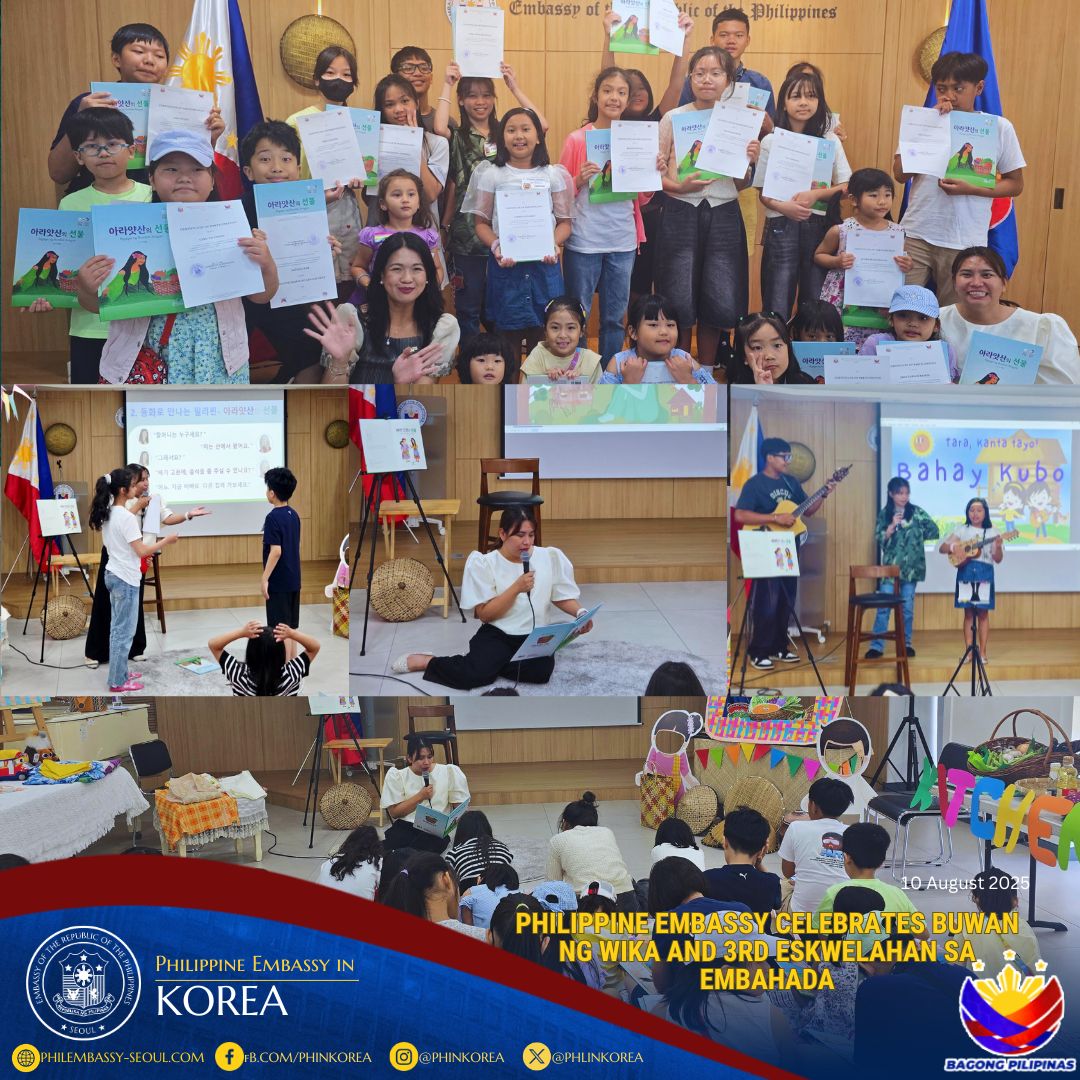
Following the book reading, the children took part in a hands-on art class focusing on the traditional Filipino craft of bayong making (native basket weaving). Participants learned how to weave their own baskets, gaining deeper appreciation of Filipino craftsmanship and in keeping with Filipino traditions, a market scene was set up where the children had the chance to visit a makeshift palengke to select vegetables and practice their Filipino language skills. This interactive session allowed the children to experience a fun and practical application of the newly learned Filipino language skills in their market experience.
Complementing the day’s theme, the children joined a cooking session featuring Pinakbet, a classic Filipino vegetable dish made with produce commonly grown near Mount Arayat. Through this activity, participants were introduced to traditional Filipino ingredients and cooking methods, reinforcing their appreciation for Filipino culture through cuisine.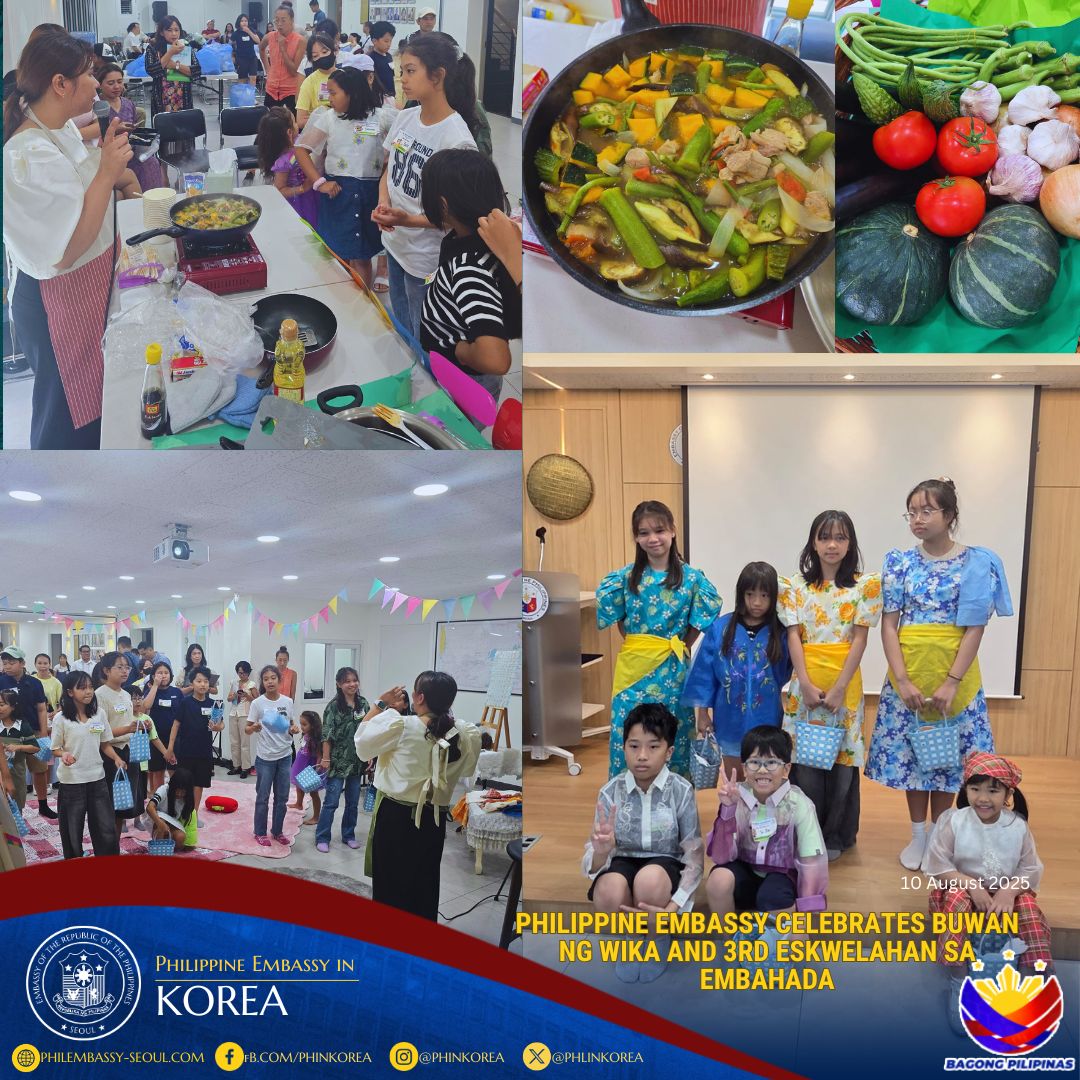
The Eskwelahan sa Embahada created a dynamic and enjoyable learning experience for the participants. The activities provided the children with meaningful ways to engage with their heritage and create memories with their families, especially the Filipino parents whose pride and joy can be seen in their faces as their children showed enthusiasm in learning the language and culture of their motherland.
The event ended on a joyful note as parents, many of whom were moved by their children’s enthusiasm, were treated to a Filipino-style merienda of sweet spaghetti and fried chicken—bringing familiar flavors of home to the community.
The Philippine Embassy, through the Eskwelahan sa Embahada, and other similar Filipino cultural activities, continues its commitment to supporting the cultural development of Filipino children in South Korea by providing them with enriching opportunities to explore their heritage and strengthen family bonds rooted in pride and cultural identity. END
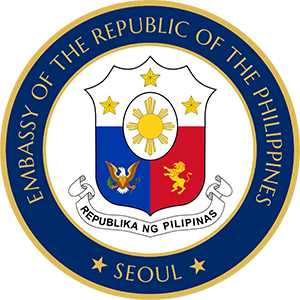


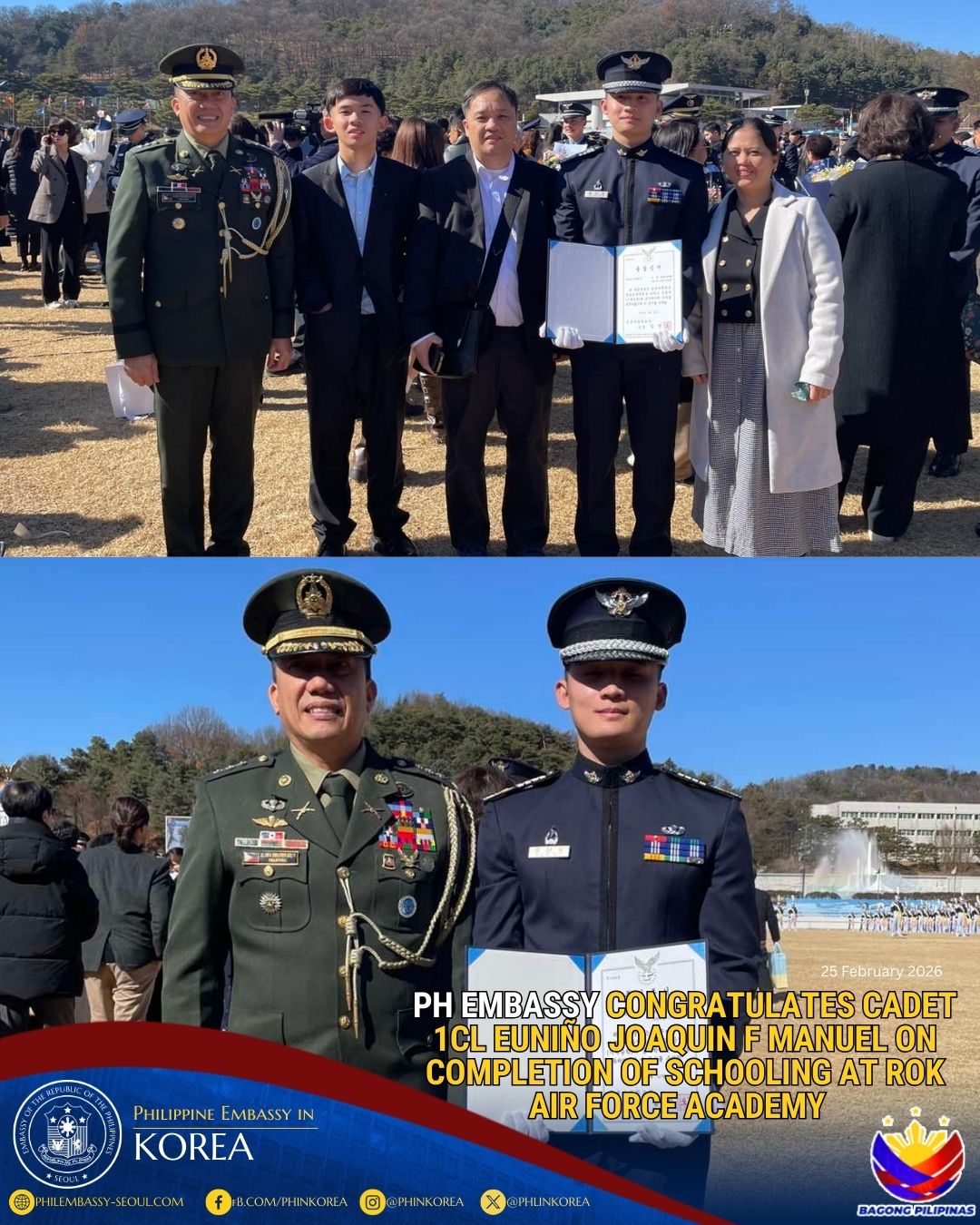 March 03, 2026
March 03, 2026
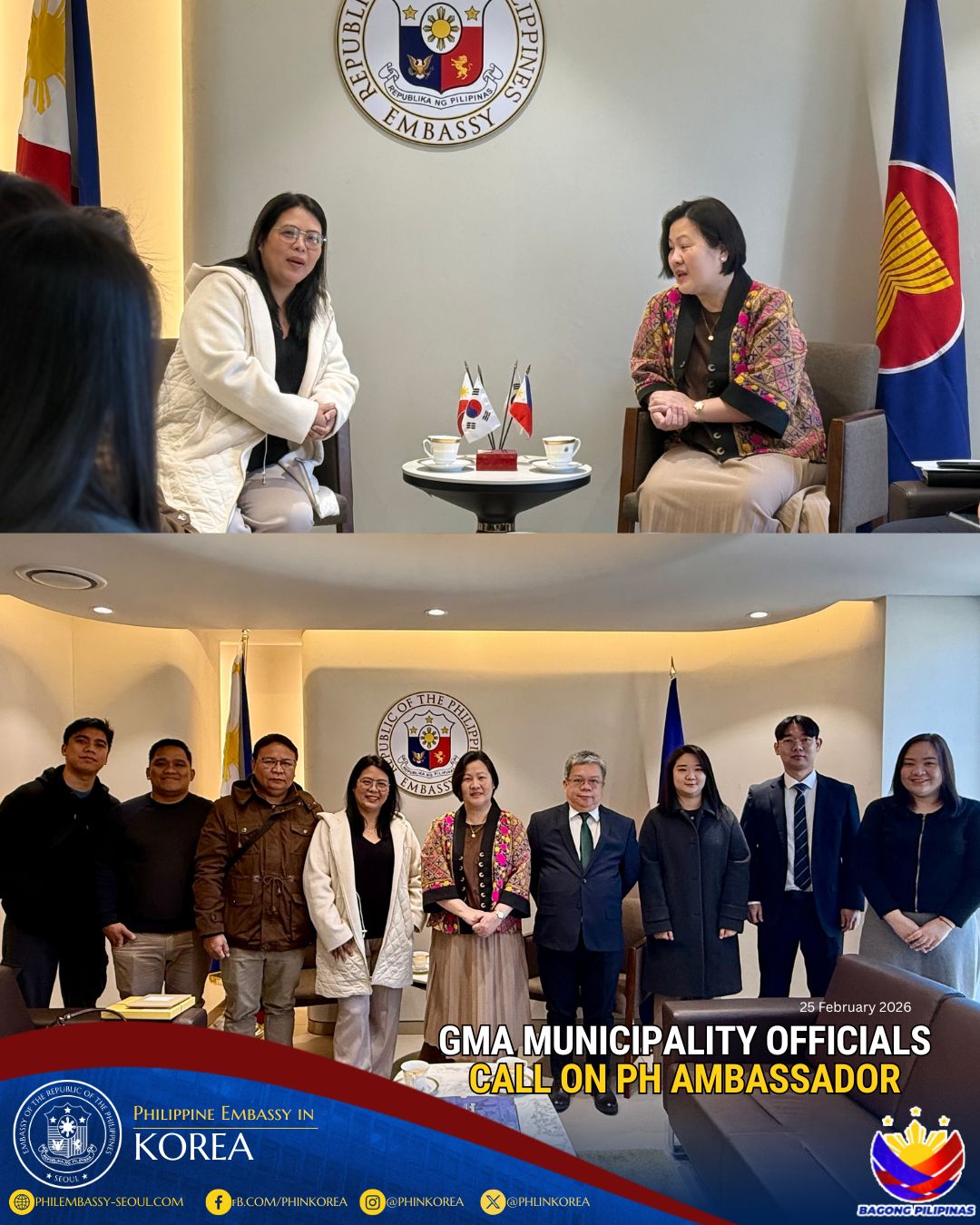 February 27, 2026
February 27, 2026
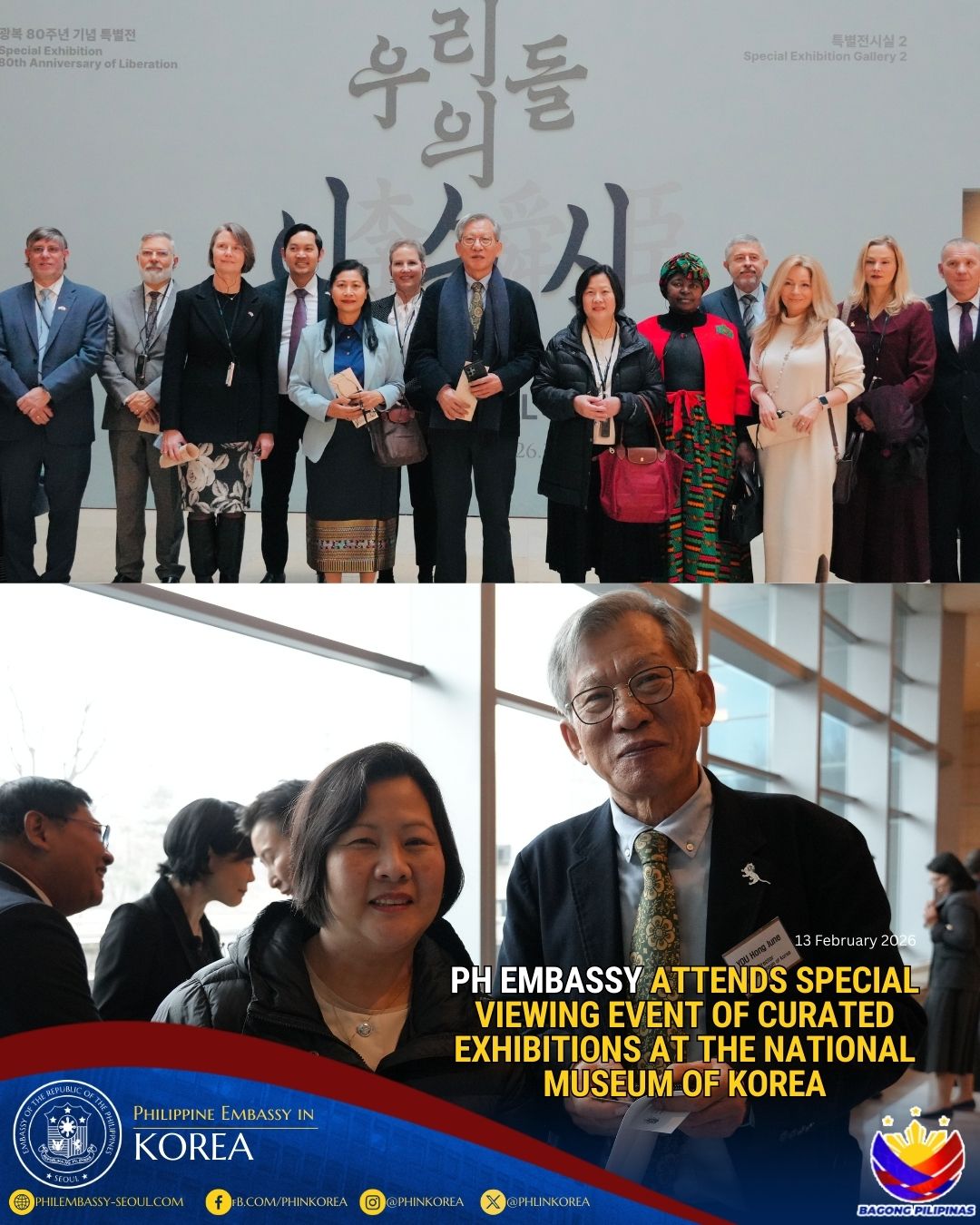 February 27, 2026
February 27, 2026
